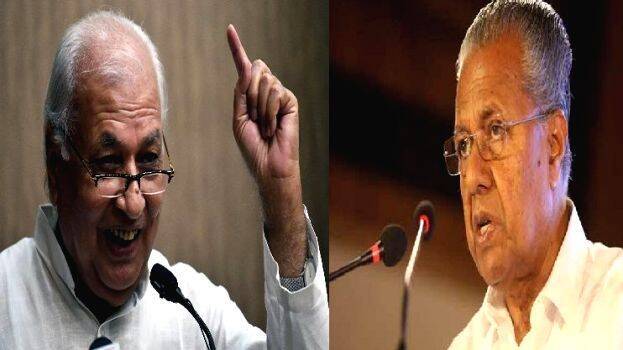

The state government appears to be firm in its decision to convene a special session of the Legislative Assembly to demonstrate the state's opposition to the contentious agricultural laws passed by the Centre. The government is gearing up to openly oppose the Governor in this matter. Governor Arif Mohammed Khan had twice rejected a request to convene a special assembly meeting on December 23. Following this, government sources informed that the move had been abandoned. The government has come up with the new decision amid the ongoing row between the Governor and government officials over the issue. The cabinet has decided to convene the assembly on December 31 to pass a resolution rejecting the central agricultural laws. The Governor will be approached again for this. Now, the state is eagerly awaiting the Governor's new stance after rejecting the government's recommendation twice in the past.
The new move is likely to escalate the tensions between the Governor and the government over the issue of the special assembly session. The Governor had rejected the recommendation for a special meeting in a short notice after by pointing that the assembly is scheduled to convene on January 8 for the budget session. Although the Governor had no authority or right to make such a decision in a democratic system of government, he remained steadfast in his position. When the government was reluctant to go any further, everyone thought that the problem was over for the time being. But the political leadership, regardless of government or opposition, is unanimous in stating that the government should not bow to the Governor's arbitrary stance. The government found itself on the receiving end as the opposition began to sharply criticize the soft approach taken by it in this regard. This might have forced it to approach the Governor once again to implement the previous decision to hold a special meeting. If the Governor rejects this request, it will lead to disputes that are not at all desirable. Litigation can also be expected as constitutional provisions are involved.
The Governor usually approves the recommendation to convene the assembly without inquiring about the agenda or topics of the conference. However, when a recommendation was made to convene a special assembly meeting on December 23, the Governor enquired about its reason. He also took the position that there was no need to convene the meeting immediately. When repeatedly asked, the government explained that it was to discuss the new agricultural laws. The Governor then questioned the inappropriateness of convening a special session of the assembly on an issue that does not come within the purview of the state government. Though the Governor's doubts are relevant, he has no legal right to ask such a question. While the legislature alone has the power to decide what the legislature should discuss, insisting that he should also know the validity of the issues is inviting unnecessary controversy. The Governor, who is also a lawyer, is no stranger to constitutional provisions. As the head of government, the Governor should always be on good terms with the government. Nothing, in particular, is going to happen if he accepts the government's recommendation to issue a notification to convene a special meeting. Instead of acknowledging the constitutional need of an elected government, it is not desirable to turn it into a political issue by placing obstacles. The Governor has the power to seek clarification from the government on any matter. He also has the power to reject illegal recommendations. However, the reality is that the current constitutional provisions do not give him the power to reject the recommendation to convene an assembly meeting.
Everyone is waiting to see if the Governor's stance will change as the cabinet again decides to convene a special session on December 31. There has to be a prudent decision in this matter. Everyone knows that the central agricultural laws are not going to be abolished with the assembly passing the resolution. Those who uphold the sovereignty of the legislature must be prepared to respect the sovereignty of parliament as well.